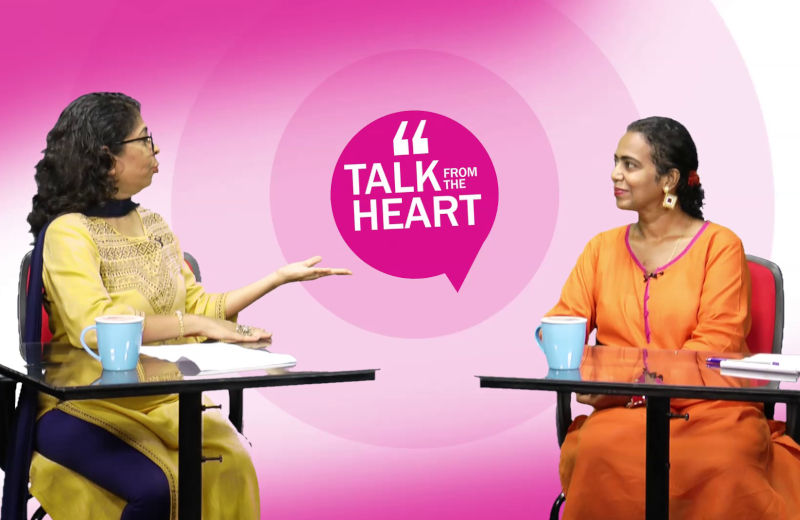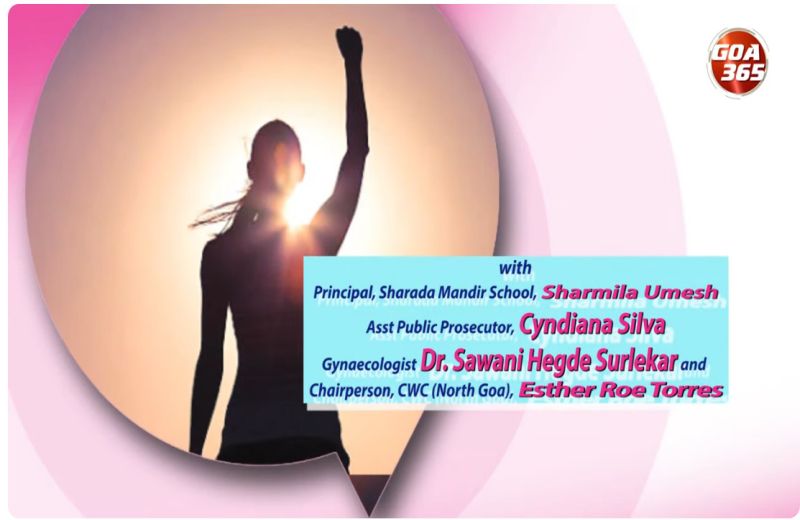
Given the sunlight, salt and soil, Goa’s flora truly flourishes. We are blessed with a variety of trees, plants and herbs, many of which have medicinal values. Amazing traditional knowledge about the use of various herbs and plants for medicinal purposes helped our elders keep the doctors away. In fact Ayurveda views herbs and spices as the spiritual essence – the Kundalini – of plants. Plants and herbs carry in their cells the wisdom of cosmic intelligence and the healing vibrations of nature. According to Ayurvedic herbology, herbs and spices have a multitude of benefits for the mind, body, and spirit.
Holistic health expert and Ayurvedic physician, Dr. Maryanne Lobo, who was the guest on the Navhind Times, ‘Talk from the Heart’ show, threw some light on the topic. The talk that aired on the Goa 365 channel, on Sunday, December 26, covered the uses and benefits of herbs besides other relevant topics.
Lobo who specialises in Panchakarma, PCOS, diabetes reversal, lifestyle disorders , weight management , kidney stone and fertility issues, recalled how she learnt about plants and mushrooms from her grand aunt and grandfather. “I always loved plants and when I had to decide between botany and Ayurveda, I chose Ayurveda,” she said. Speaking about some of the rare plants and herbs of Goa, she named Varuna or Crataeva nurvala, known for its diuretic properties, Shirish or Albizia lebbeck used as an antivenin, medicinal brinjal of the Solaneum family and the Acai/Assai palm. “Acai which was very famous before can hardly be seen anymore. It is a small black fruit that is good for the liver, gut health/ cleanse and helps balance bile and digestive juices. The leaves are a simple hangover remedy. This plant was even used to cure piles,” she explained.
With modernization and migration besides other factors, the transference of traditional knowledge and use of these medicinal herbs, has got lost, rued Lobo. Replanting these trees and plants and learning about their uses not only in medicine but also as food, she said is another approach to keeping them alive and thriving. “I learnt how to use the medicinal or white brinjal as food from a friend in Auroville,” she shared. Another way of learning is through plant walks like the ones Lobo organizes frequently. “In addition there are several plant-lens apps like Flowers of India that are good and of course getting this knowledge straight from our older relatives or neighbours who are a treasure house of information is the best way to learn and keep this knowledge alive,” she emphasised. Giving several examples of local folk who had cures for a multitude of ailments, like the lady from Assagao who could cure cobra bites; she highlighted the importance of transference of this knowledge to the next generation.
Knowledge of the uses of these plants and herbs alone however is not enough as one also has to be aware of poisonous or harmful flora as well. “The first principle of foraging in my opinion is what you don’t know you should not eat and secondly do not over harvest,” she stressed. Tiger’s claw or Indian coral tree was on the top of the list that Lobo mentioned that one has to be careful with. “I call it Ms Drama,” she said laughing, “It starts of as yellow, then turns orange and once fully bloomed it becomes red. Even though it is poisonous, its roots are used in the cure of arthritis especially rheumatoid arthritis.” Other varieties that she warned about were, oleander/kaneri and datura besides others. A useful tip that she gave to identify poisonous plants/herbs was to stay away from bright coloured plants in forests.
Lobo who has featured on online platforms and panel discussion on the use of medicinal plants, biodiversity, preservation, conservation and sustainability, strongly advocated community farming and said, “We had this system earlier but sadly today it is non-existent. We should all work towards reviving this system as it will benefit all concerned.”
For home gardeners who are interested in a herbal garden, she recommended ginger, brahmi, turmeric and basil/tulsi.
The talk was informative and truly an eye-opener!



